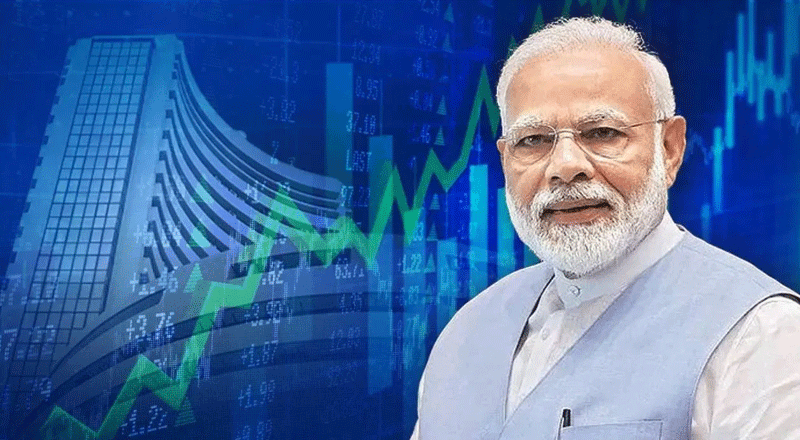As India enters a new phase under the NDA 3.0 government, expectations are high for transformative economic reforms. Former Reserve Bank of India (RBI) Governor D Subbarao has emphasized the need for the government to leverage its strong political mandate to implement crucial structural reforms. With the Union Budget 2025-26 set to be presented by Finance Minister Nirmala Sitharaman on February 1, India stands at a crossroads where decisive action can propel the nation towards sustained economic growth and job creation.
Pushing the Economy Towards High-Growth Mode
Subbarao highlights that the budget’s primary objective must be to place the economy on a high-growth trajectory. However, he stresses that economic growth alone is not enough—it must be inclusive, reducing income inequality and ensuring that its benefits reach the lower half of the population.
India’s vast consumer base at the bottom of the income pyramid is a key driver of growth. The most sustainable way to increase their consumption is through job creation. “If they earn more, they will spend more, leading to a cycle of increased production, job opportunities, and higher growth,” Subbarao explained.
Attracting Investments Amid Global Shifts
Global economic uncertainties, including the prolonged US-China trade war, present an opportunity for India to emerge as an attractive investment destination. Subbarao underlined the importance of creating a conducive environment for foreign investors. “If the US-China trade war intensifies, investors will seek alternative locations, and we must ensure that India becomes their preferred choice,” he said.
Job Creation Through MSMEs and Exports
The former RBI Governor placed particular emphasis on supporting Micro, Small, and Medium Enterprises (MSMEs) and boosting labour-intensive exports to generate employment. With unemployment rates fluctuating, strengthening these sectors is imperative for India’s economic stability.
Rupee Depreciation: A Strategic Move?
Addressing concerns about the rupee’s weakening position, Subbarao argued that allowing the rupee to depreciate could benefit India’s export competitiveness. “The rupee is currently overvalued in real terms, affecting our exports. A more competitive exchange rate could enhance export growth,” he said.
While a weaker rupee could contribute to inflation, Subbarao believes the overall economic impact would be positive. He also pointed out that former US President Donald Trump’s trade policies could strengthen the dollar for an extended period, making it impractical for India to artificially hold up the rupee.
Tackling the Rising Culture of Freebies
A major concern highlighted by Subbarao was the increasing trend of political giveaways or “freebies” by both central and state governments. He questioned whether such populist measures genuinely translate into electoral gains, while warning about the long-term fiscal burden they impose.
In a developing country like India, targeted welfare programs for vulnerable groups are necessary. However, reckless competitive populism can derail fiscal stability. Subbarao referenced Prime Minister Narendra Modi’s past remarks criticizing the “revadi” (freebie) culture but noted that no concrete action has been taken to curb this practice.
To address this, he proposed that the Finance Minister initiate discussions with state governments and political parties to establish a code of conduct on freebies, ensuring that fiscal responsibility remains a priority.
Excluding Food Inflation: A Risky Proposal
Commenting on the Economic Survey 2023-24’s suggestion to exclude food inflation when setting benchmark interest rates, Subbarao strongly opposed the idea. He argued that food is a significant component of India’s consumption basket, and its prices shape inflation expectations. Ignoring food inflation in monetary policy could lead to inaccurate assessments and weaken public confidence in the RBI’s decision-making.
Chief Economic Advisor V Anantha Nageswaran had proposed this measure, stating that food prices are influenced by supply-side factors rather than monetary policy. However, given that food inflation constitutes nearly 46% of the Consumer Price Index (CPI), Subbarao believes excluding it could result in misguided inflation management.
The Way Forward
With a strong political mandate, the NDA 3.0 government has a rare opportunity to implement bold structural reforms that could reshape India’s economic landscape. Prioritizing job creation, export growth, fiscal discipline, and a balanced monetary policy will be crucial for long-term prosperity.
The upcoming Union Budget presents an ideal moment for the government to make tough but necessary choices that will define India’s economic trajectory for years to come. The nation watches closely as Sitharaman prepares to unveil policies that could either sustain the status quo or usher in a new era of robust economic growth.
(With inputs from agencies)





